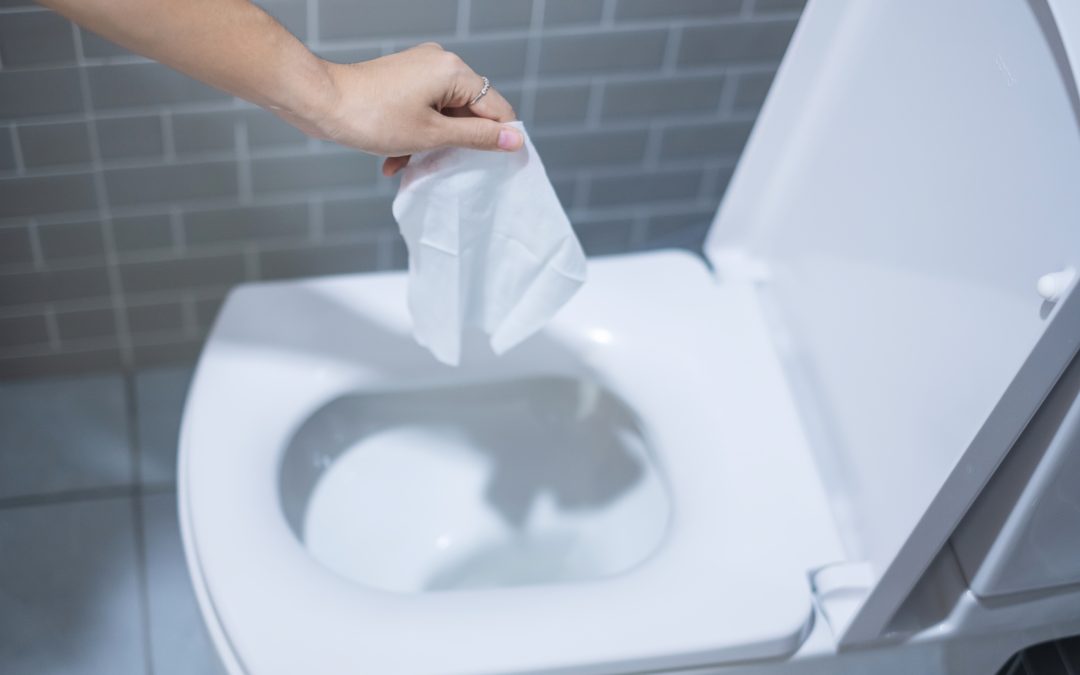When you’re walking the aisles of your grocery store searching for your favorite toilet paper brand, you might notice the variety of wipes stocked on the same aisle. Many of those brands advertise their wipes as flushable, promising they’ll eventually break down in water.
But is that really the case?
Flushable wipes may make it out of the bowl but can get stuck in your pipes. They can get clogged up in drain pipes with an elbow turn or multiple wipes can build up a blockage.
However, eventually flushable wipes are supposed to break down just like toilet paper. Toilet paper is designed using short cellulose fibers that tear easily and break apart in water. These fibers form a sludge that travels the sewage system and is broken down in digester tanks along with other waste.
Some brands claim their wipe products start breaking down right after flushing, just like toilet paper. Others state that their product can be flushed using well-maintained plumbing systems, suggesting that it’s possible your plumbing may not be up to the job.
Consumer Reports tested four flushable wipe products in 2013 – three name brands and one store brand. The store brand and one of the name brands did not easily disintegrate overnight. All four of the products took more than 10 minutes in a low-speed blender to break down into smaller pieces.
Items in the sewage system that don’t break down are filtered out then disposed of separately. This could be products like baby wipes or sanitary items that people often flush but are not supposed to.
Many wastewater treatment facilities argue that flushable wipes still end up causing them issues.
There are horror stories of large sewage blockages called “fatbergs” being pulled from sewer systems. These masses are often made up of solid waste like wipes and congealed fats that have trailed through drains. In 2018, there was a 210-foot-long fatberg found underneath a town in England. An analysis of the contents found it was partially made up of wet wipes and other household products.
The tricky thing about these concerns is that people do not know whether or not these wipes are “flushable” ones or something not designed to break down like a baby wipe or cleaning wipe.
There is a set of guidelines for companies labeling their products as flushable. The Guidelines for Assessing the Flushability of Disposable Nonwoven Products or GD4 helps companies accurately label whether or not their product can be flushed. It also encourages sellers to warn consumers if a certain kind of wipe cannot be flushed in the toilet.
However, these guidelines hold no legal consequences and you can’t truly know for sure how flushable a product is.
The best thing you can do for your home’s plumbing is to avoid flushing anything that is not excrement, urine or toilet paper – when in doubt, throw it out.
If your toilet is experiencing issues, Mike Wilson Plumbing can repair all of your plumbing concerns. Our team of experts can provide residential plumbing services to get your pipes working again.
Contact us today to learn more about how our team of experienced plumbers can help keep your pipes pristine and disaster-free.

